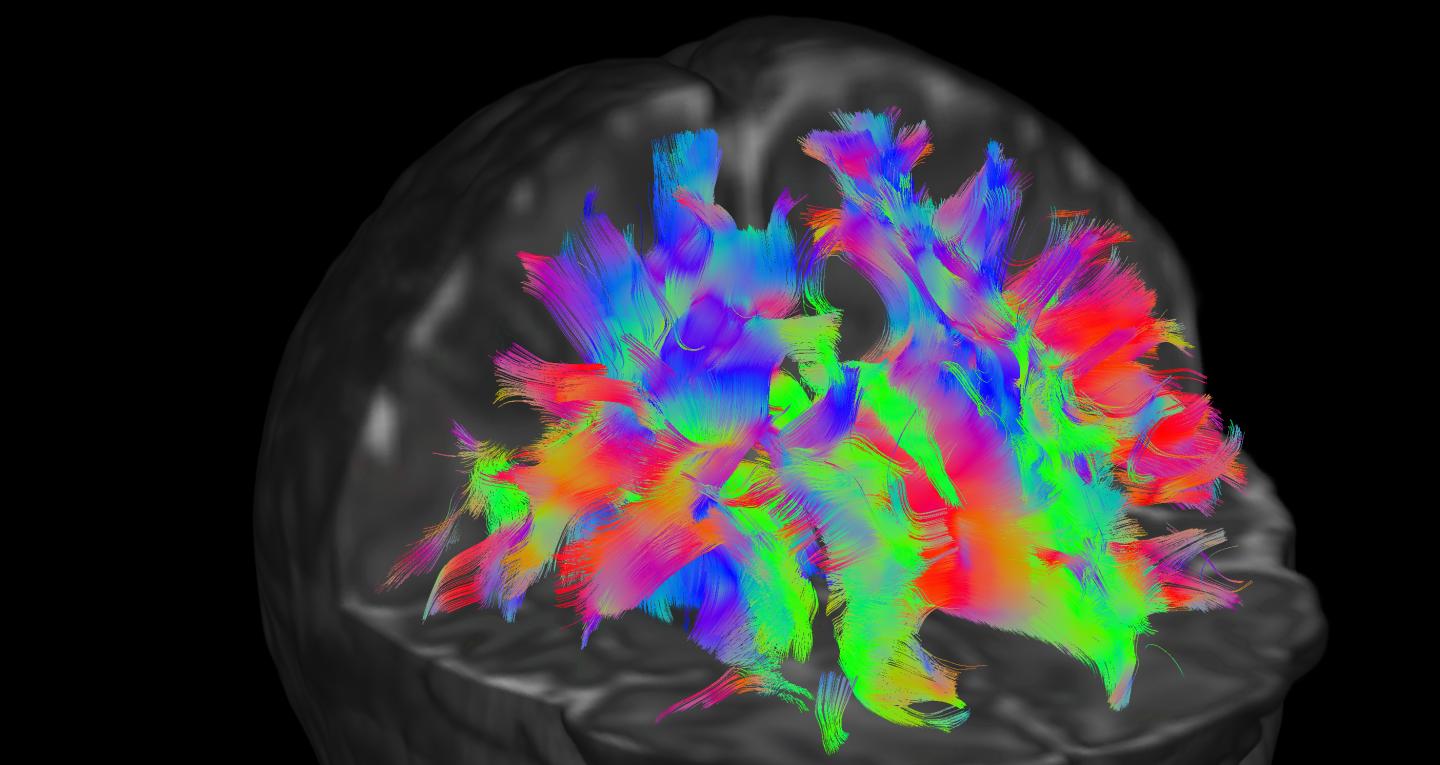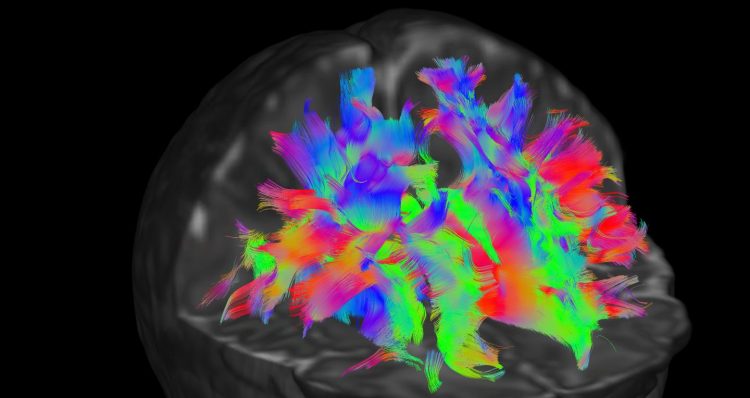
Scan of a newborn baby’s brain with visualisations of information derived from diffusion-weighted data acquired as part of the Developing Human Connectome Project (http://www.
view more
The Developing Human Connectome Project (dHCP) has published ground-breaking MR brain scans of over 500 newborn babies, which researchers from all over the world can download and use to study how the human brain develops.
A collaboration between King’s College London, Imperial College London and the University of Oxford, the images are the first large-scale data release of this project, which will uncover how the wiring and function of the brain develops during pregnancy and after birth.
A pilot release of scans from 40 infants has already been accessed hundreds of times. The team of researchers are sharing their images and methods online so that other scientists from around the world can use the data in their own research.
Most of the babies were imaged while naturally asleep. If the baby woke up, scanning was stopped and attempts made to resettle before proceeding. Of course, even when sleeping peacefully, many babies move and the team had to work on ensuring all the data was motion corrected, largely using methods developed specifically for the dHCP project, in order to produce highly detailed and rich information on brain development.
The images included in the data release are from babies born and imaged between 24-45 weeks of pregnancy at the Evelina Newborn Imaging Centre part of the Centre for the Developing Brain, King’s College London, based at St Thomas’ Hospital, London.
Scientists believe this information will allow teams across the world understand how important diseases like autism develop, or how problems in pregnancy affect brain growth.
Lead Principal Investigator, Professor David Edwards from King’s College London said: “The Developing Human Connectome Project is a major advance in understanding human brain development- it provides the most detailed map of how the brain’s connections develop to date, and how this goes wrong in disease.”
###
The research consortium is funded by a €15 million Synergy grant from the European Research Council. The aim is to ensure data is shared as widely as possible. Future releases will include data from babies still in the womb as well as information on children’s genes and their abilities as they grow up.
Scientists are able to access and download the images here: http://www.
Media Contact
Tanya Wood
[email protected]





